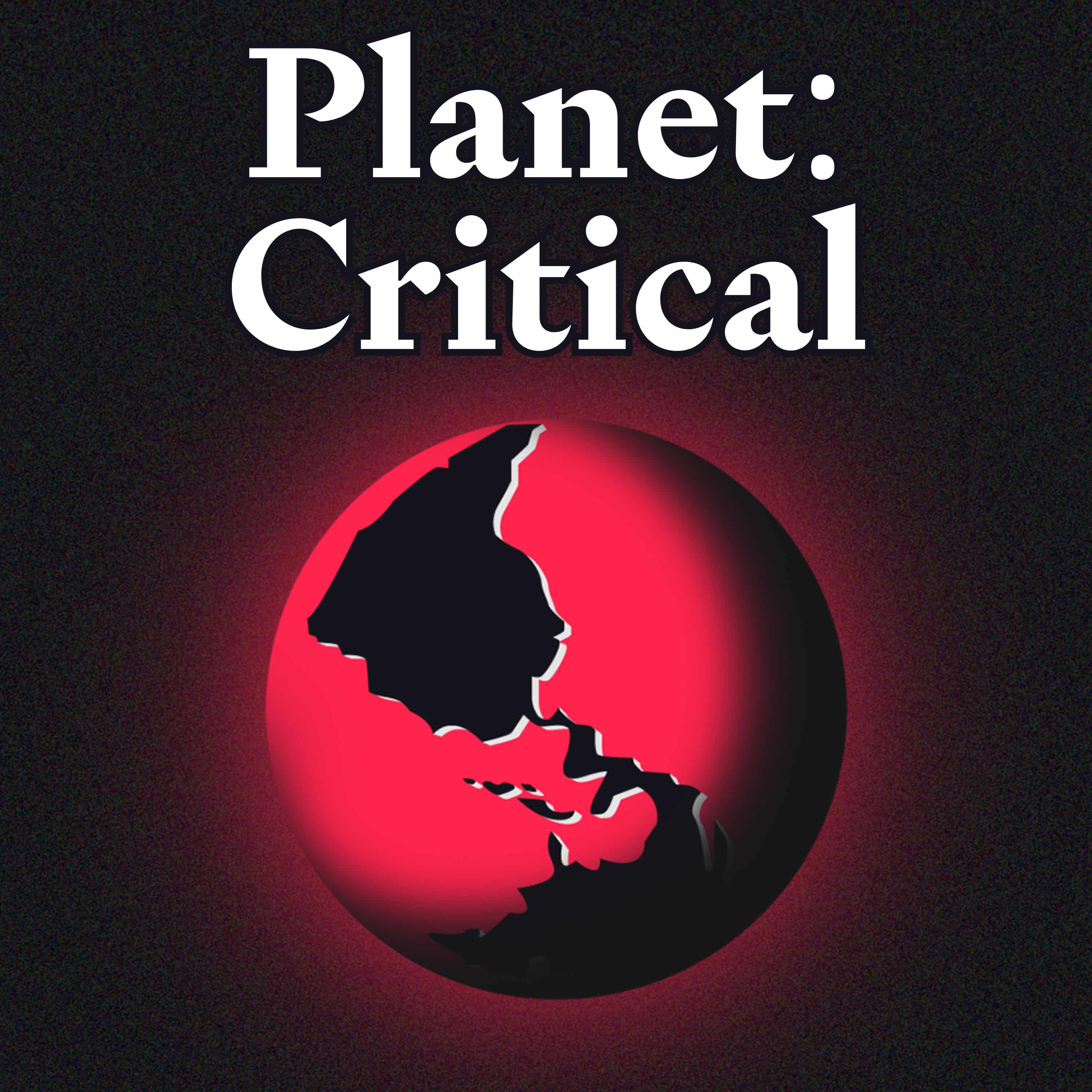

Planet: Critical
Rachel Donald
Planet: Critical is the podcast for a world in crisis. We face severe climate, energy, economic and political breakdown. Journalist Rachel Donald interviews those confronting the crisis, revealing what's really going on—and what needs to be done. planetcritical.substack.com
Episodes
Mentioned books

Jan 9, 2025 • 1h 6min
Climate Criminals | Aaron Regunberg
Aaron Regunberg, a lawyer and former Rhode Island politician, dives deep into the urgent fight against Big Oil’s role in climate change. He discusses groundbreaking legal strategies aimed at criminally prosecuting fossil fuel companies, exploring historical parallels to big tobacco. Regunberg outlines the challenges of navigating corporate accountability and highlights the importance of grassroots mobilization for climate justice. He also calls for engaging narrative and collaboration to shift public perception and promote meaningful change. Tune in for an insightful conversation on climate litigation!

5 snips
Jan 2, 2025 • 51min
Scale Out in 2025 | Rachel Donald
Happy New Year! As 2025 begins, the host delves into why the world is in crisis and questions the role of governments in solving climate challenges. Collective action emerges as a theme, urging a shift from hero-centric solutions to community-driven approaches. The importance of dismantling oppressive power structures while nurturing love and collaboration is explored. Joy and creativity in activism are emphasized, transforming the fight for the planet into a shared, joyful journey toward meaningful change.

11 snips
Dec 26, 2024 • 1h 2min
The Need for Roots | Nathalie Nahai
Nathalie Nahai, a polymath in technology, marketing, and psychology, shines in a captivating discussion. They delve into the roots of human behavior, contrasting bonobos and chimpanzees to highlight societal influences. The conversation emphasizes the urgent need for systemic changes while exploring alternative community models. From reconnecting with nature to navigating technology's impact on identity, Nathalie and the host offer hope and laughter as they reflect on human resilience amidst global challenges.

20 snips
Dec 19, 2024 • 1h
Exposing the Imperial Class | Matt Kennard
Matt Kennard, an investigative journalist and author, delves into the complex relationship between U.S. imperialism and corporate power, arguing that the state undermines democracy globally. He critiques mainstream journalism for failing to challenge these narratives. Kennard discusses the radicalizing effects of recent events in Gaza, emphasizing the urgent need for informed action. His insights expose the lies surrounding American foreign policy and highlight the courageous journalism emerging from conflict zones, calling for greater awareness and support.

37 snips
Dec 12, 2024 • 55min
Language and Violence | Sunil Amrith
Join Sunil Amrith, a Yale history professor and author of "The Burning Earth," as he reveals the deep ties between violence against both humans and nature. He discusses how language has been weaponized to obscure truths and perpetuate injustices. Explore the colonial suppression of indigenous languages and its impact on cultural identity and environmental movements. Amrith also connects historical violence, technology, and ecological crises, emphasizing the vital need for grassroots activism and justice in a rapidly changing world.

Dec 5, 2024 • 51min
From the Ashes | Dana Fisher
Dana Fisher, Director of the Center for Environment, Community & Equity at American University, explores the interplay between climate activism and political oppression. She argues that state violence could galvanize public action against climate-deniers. The conversation delves into the impacts of fossil fuels on politics, the dangers of misinformation during crises, and the need for grassroots movements to drive change. Dana discusses how past social movements inform today's energy transitions while emphasizing the power of citizen mobilization in the face of a climate crisis.

Nov 28, 2024 • 51min
Civil Resistance | Pasha Bell
Pasha Bell, a climate researcher and activist currently pursuing a PhD, shares their experience of being imprisoned for protesting UK climate inaction. They discuss the recent legal changes that criminalize protest while exposing the corporate interests behind these draconian laws. Pasha delves into the erosion of democratic rights, drawing connections to broader issues like environmental collapse and economic inequality. They highlight grassroots movements like Just Stop Oil and Citizens’ Assembly, emphasizing the power of civil resistance in driving meaningful change.

Nov 21, 2024 • 1h 2min
Climate Litigation Breakthroughs | Nikki Reisch
Nikki Reisch, Director of the Climate and Energy Program at the Center for International Environmental Law, is a leading voice in climate litigation. She discusses the rising wave of climate lawsuits that redefine climate as a human rights issue. Nikki emphasizes law as a powerful tool for change and stresses the importance of public support in this fight. She delves into the complexities of international law, the impact of treaties on fossil fuel industries, and the role of youth movements in advocating for climate justice.

14 snips
Nov 14, 2024 • 1h 1min
Hurt People Hurt People | Kosha Joubert
Kosha Joubert, CEO of The Pocket Project, specializes in healing collective trauma and its implications. She explores how collective trauma influences our reaction to environmental crises and advocates for connecting personal and collective healing. The discussion delves into the interplay between historical traumas, contemporary society, and the climate crisis. Additionally, Joubert emphasizes the role of compassionate dialogue in bridging political divides and fostering community-driven solutions for healing amidst systemic oppression.

9 snips
Nov 7, 2024 • 44min
WTF | Emily Atkin
Emily Atkin, the editor of HEATED, dives deep into the potential climate impact of another Trump presidency. She explains Project 2025 and the likelihood of regressive policies on climate legislation. The conversation touches on Elon Musk’s ties to fossil fuels and reflects on Bitcoin's environmental challenges. Atkin also calls for urgent activism amidst disillusionment and discusses the media's role in framing climate narratives, emphasizing the need for clearer communication in addressing both climate change and rising fascism.


